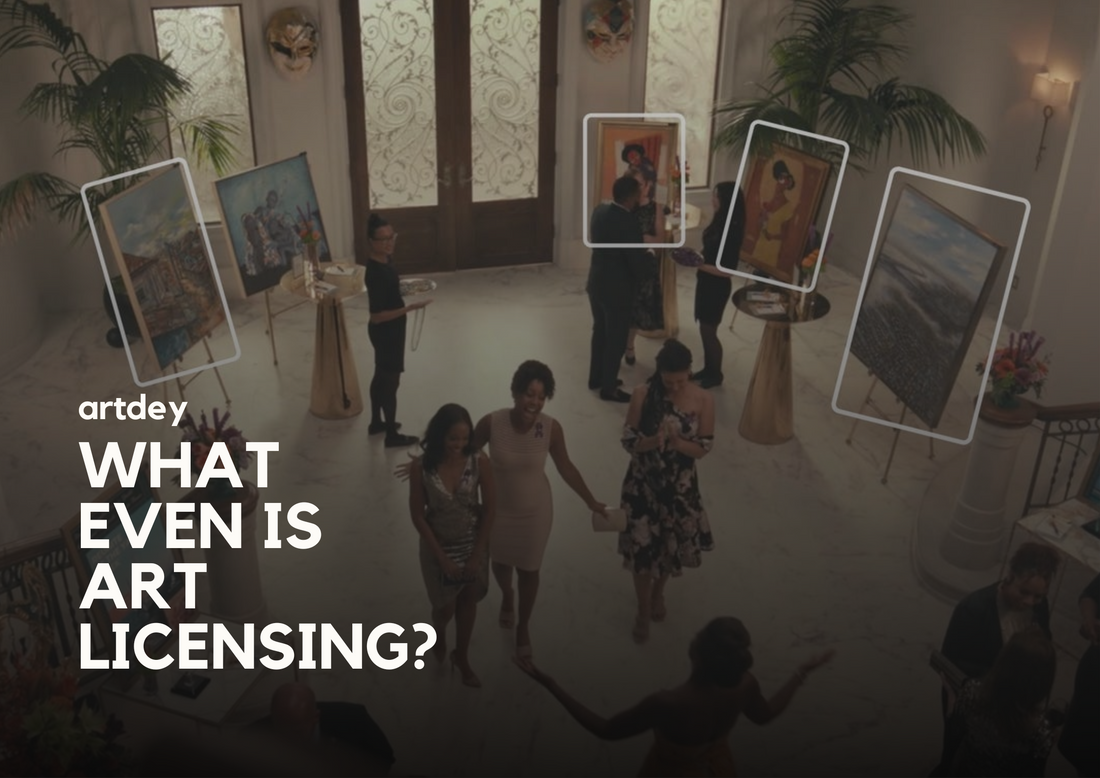
What Even Is Art Licensing?
Share
Hello, ArtDey fam! We are glad to announce that our art can now be licensed for TV and Film! This is excellent news, but what does it mean? Okay, let’s break it down:
What is Art Licensing for TV and Film?
Art licensing for film and TV refers to permitting filmmakers, television producers, and other media professionals to use artwork in their productions. It involves a contractual agreement wherein the artist gives rights to reproduce, display, or incorporate their artwork into visual storytelling mediums such as movies, TV shows, and commercials.
What’s its purpose?
Art licensing for film and TV is a beautiful avenue for African artists to not only earn money but also gain recognition on a global scale. This collaborative venture between art and entertainment offers a mutually beneficial relationship, enabling artists to monetize their creative talent while enriching the visual landscape of film and television. Art licensing has helped:
-
Amplifying Artistic Reach: Art licensing allows African artists to extend their creative reach beyond traditional art galleries. By collaborating with film and TV productions, artists gain access to a massive audience. Their artwork becomes integral to the visual narrative, reaching millions of viewers worldwide and exposing their talent to diverse communities.
-
Enhancing Visual Narratives: Artwork can add depth, meaning, and visual appeal to the storytelling of films and television shows. By licensing art, filmmakers and showrunners can enhance the aesthetics, evoke emotions, and provide a unique visual experience for the audience. The artwork becomes an integral part of the production, creating a synergy between the art and the narrative, enriching the overall viewer experience.
-
Additional Revenue Streams: Art licensing offers artists the potential for a steady income stream, allowing them to monetize their talent in new and exciting ways. Licensing agreements often involve royalty payments or upfront fees, providing financial stability and allowing artists to focus on their craft. This additional revenue stream can help support their artistic endeavors, invest in materials, and further their career growth.
In conclusion,
Art licensing for film and TV presents an exciting opportunity for African artists to not only earn money but also gain recognition on a global scale. By collaborating with the entertainment industry, artists can extend their creative reach, showcase their talent to diverse audiences, and explore new artistic horizons. Embracing art licensing opens doors to new possibilities, creating a harmonious relationship that benefits both artists and the industry. So if you’re in film or know someone in the film industry and you need a steady and ready art plug, you know who to call now (ArtDey, by the way)